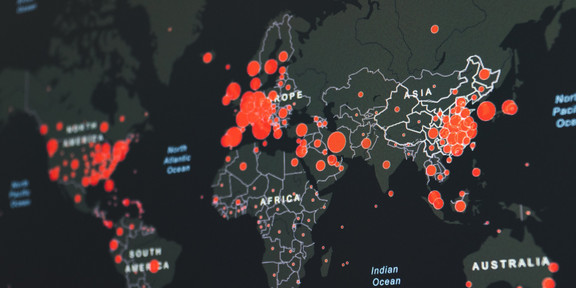New chapter on geographical knowledge orders in a digitalisation context

The digitalisation understood as a techno-social process influences almost all sectors of society. These developments tend to progress slowly and over longer periods of time, which is why corresponding changes may only become clear in retrospect. Even less apparent is the impact of digital technologies on the concept of geographical space, which, understood as a set of socially constructed relations between entities located on the Earth’s surface, is already abstract in itself. Yet, geographical space as a concept is currently undergoing fundamental changes. Digital technologies can enable or impede geographies, influence their design and perception, or induce actions that have a spatial manifestation. A recent chapter published by René Westerholt (see a full reference below) offers a discussion of geographical knowledge orders that seem to be changing under the influence of the digitalisation. First, an introduction to both technological and sociocultural aspects of the influence of digital processes on geographical spaces provides the fundamentals of the processes of change to be discussed. Based on this, different digital geographical conceptions of space from human geography are being presented, as these are the contexts in which digitally influenced geographical information is created. The latter forms the basis for knowledge. Therefore, various prototypical forms of geographical information are briefly introduced. The subsequent discussion of changing geographical knowledge orders shows that digitalisation leads to a mixed form of knowledge regarding geographical matters: on the one hand, there is digitally influenced local (first hand) experiential knowledge which on the other hand also has characteristics of formalised propositional knowledge. Furthermore, the chapter argues that, despite contrary projections especially from the 1990s, geography is gaining importance as an organising structural element for knowledge, not in a traditional way in relation to countries or regions but in an irregular and hyperlocal way about places that are both digitally and physically present.
Westerholt, R. (2023). Geographische Räume, neu konstruiert. Zur Konstruktion, Kuratierung und Analyse digitaler Geographien. In: Berger, J., Wübbena, T. (eds.): Wissen ordnen und entgrenzen – vom analogen zum digitalen Europa?, Veröffentlichungen des Instituts für Europäische Geschichte Mainz – Beihefte, 141 (4), Göttingen, Germany: Vandenhoeck & Ruprecht, 87–114. DOI: 10.13109/9783666302312.87.

